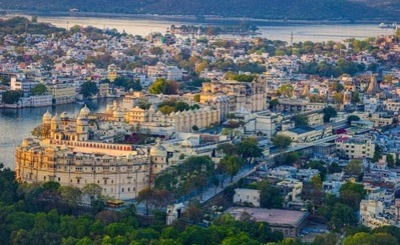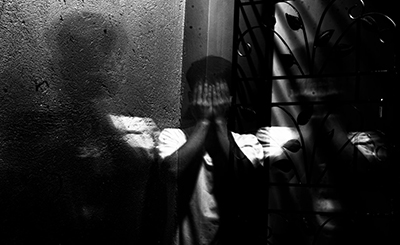
‘Free verse offers a blank canvas to play with words’
My writing life began when I was 9. My first introduction to poetry were my mother’s poems, who wrote in Hindi. Summer afternoons were spent in India’s small towns amid litchi trees inducing dreamy ideas about the world. Poetry for me at the time was a simple act of expression. I wrote of the ordinary world — personal and impersonal, and as rebellion of teenage took hold, I wrote about issues I felt angry about. As a girl growing up in small town India, patriarchy and male gaze in public life are common occurrences, but coming from a feminist household, I was at odds with this world. Everyday life and general attitude towards women made me angrier. Poetry then became a tool of protest, often finding space in local newspapers, university almanacs, school magazines. Reading Mahadevi Verma and Amrita Pritam’s feminist poetry alongside those of Maya Angelou and Sylvia Plath added layers to my understanding. I would read both Hindi and English poets, and this bilingualism enriched my worldview in unimaginable ways. I was drawn to Ramdhari Singh Dinkar’s poetry for its engagement with social inequality and caste, both important themes in Bihar where I grew up. Or TS Eliot, whose poetic depictions of uncertainty and an artist’s isolation through his poetry has always resonated with me. Or Pablo Neruda’s masterful poems on love and loneliness. In recent years, I have absolutely loved reading Mary Oliver, whose poems on nature and everyday life are ripe with poignant wisdom but told very simply.
The list is long, and I can go on and on, but one question I often reflect on is, in life’s busyness when many things I have loved, have receded into nothingness, how does poetry keep finding its way to me? I ask this because my public life as a journalist for a decade was more engaged with my longform narratives, not poetry. Yet, in commutes, before sleeping, during lunch breaks, before or after interviews, in between travels, at midnight, noon or dawn, I have read, and typed poems in my phone in compulsive urges.
Poetry, I realise, is a compulsion for me with everlasting echoes, and I try to make sense of this through everything great poems have taught me — compassion, gratitude, courage, protest, love, humility, kindness. Poems are communities, where one can find solace, or find reasons to fight. Either way, we seek communities because that lies at the core of us as human beings. When we write poems, we expand this community and offer it the cries of a newborn. We continue the tradition, we challenge the old guard, we offer a fresh mould for very ancient problems, and we find new troubles to mess with. That’s poetry for me. I also love that often, good poems are like therapy, or catharsis, or acts of love, and while deeply subjective, they help us see the many-coloured prism of truth. Poetry continues to be my voice, my angry protest, or maudlin prayer. An introverted me has been expressing in poems for years, and it’s very true that I would perhaps die for want of expression and understanding, if I didn’t keep the company of poems.
While my poems deal with a range of themes, they also reflect my gradual evolution as a poet. Besieged with the idea that love is universal, I explored myriad dimensions of the emotion through poetry, until themes of gender, loneliness, depression, race, and colonialism started to influence my writing. The path ahead, at least for the moment, has become quite clear to me. Even while sharpening my edges as a business historian, my understanding of the past is driving me to poems, and towards a deeper enquiry of these themes.I am putting forward five poems that reflect some of these themes. My poems flow in free verse, which offers a blank canvas for my play with words, minus rigid rules around structure and form.
Awakening
The stars, the sky, the Sun have all existed
but it is possible you only see them now:
the dawn snakes up and swallows darkness,
its mouth no longer the benevolent moon,
Sun sparkles in everyone.
Into this morning, you forget to post-mortem
the lapse of time, end of seasons, nightfall.
Moments transcend days, iridescent ashes fade
tomorrow’s rings of fire; in still rivers,
a million rainbows appear.
Lockdown Exodus
My rubber slippers,
pinned like hungry leeches to my feet,
are slowly coming off.
Summer earth beneath me
embellishes with my blood
the highway back home.
I don’t feel hunger, the loss of work
shuts me down like a virus,
but I watch —
children on carts
with biscuits for lunch,
pregnant women fainting
under April Sun.
If misery could glue us,
cheek to cheek, like siblings incarcerated,
history will call this mass murder.
Tea
Assam, 1836-1947
The coolies protest all the time, bloody ‘redcoats’*
swimming in a pool of green, where the leaves
are in no rush for plucking but the planters are,
white as milk in the bosom of women
feeding infants. The herb is the new discovery
in the new world and the sahib has come looking
for fortunes, oceans away to dwell in disgust,
dust and grime, in the midst of diseases,
left at the mercy of unstable steamers plying
in flood-prone rivers, pummelling, eroding, vandalising
the fertile earth, brown as the soil that fills it.
In the dense shrubs, delicate fresh sprouts
make a wild dance of prosperity and there,
hundreds of gardens magically appear,
like hungry children in large families, and
the bountiful harvest, like loving mothers,
must now feed them all. Soot-like hands,
between hunger and protest, harness for years
the plants and their resentment, ending the day
with a comparison of wages with hungry nights
back home in Champaran, Ranchi, Tirhut*,
and feeling relieved the coolie bandits*
preying on them for the slave market have left.
They are now enclosed within a phatak*,
impregnable, like prison cells in Andamans
that never see the light. The leaves are gold —
little do they know — dried, burned, compressed
into bricks, sold in auctions, bartered as coins,
a beverage beyond expensive in the bazaars
of Britain where women come looking
for fine muslin from Dhaka but their morning cup
would come from Assam. The leaves must lose colour
for the price they happily pay, the older the better,
like hair on the heads of ageing women, where
no shade of henna can conceal the extraordinary
sparkle of the greys. But unlike women,
the fiercely burnt leaves in the cauldron,
saffronesque as the dusk that swallows the Sun,
become the blazing beverage of London mornings.
Fragrant, pigmented, amorphous like sand
in careless hands, they are also mass resignations
from the greed they could never feed,
not even in a hundred years.
Note: redcoats: Several plantation workers were given red coats, similar to the ones worn by British army soldiers, for work on the plantations, and called ‘redcoats’.
phatak: Hindi word meaning ‘door’. In many memoirs on work conditions on Assam’s tea plantations in British India, workers have described life on the plantations as being locked inside a phatak.
Champaran, Ranchi, Tirhut — Names of places in Bihar where workers were brought to work on tea plantations in Assam.
Coolie bandits: An army of bandits notorious for kidnapping the coolies (workers) while on way to tea plantations for work and selling them in slave markets
An Evening by the Lagan*
I wanted to be that woman
with silver hair, chubby cheeks,
and face lit up with a man’s love -
along the river that makes me want
unfettered freedom.
I wanted to be those hips
swinging at the touch of a man’s desire,
tied to passion, loving faith,
along the river that carries in its waves
whispered sorrows of tomorrow.
I wanted to be them all
but the picture, I see,
is impossible.
My hope is hinged on the boats of culture,
to the anchor that bleeds me
but does not set me free.
I am in a prison without locks,
yet I am not breaking free.
So, I am that woman
on the bench by the park
weeping under my sunglasses
and wishing for that man,
who just blew me a kiss
from the Albert Bridge,
to pause a little, sit by my side,
and hold my hand
without meaning much.
*Lagan: name of the river in Belfast
Lockdown Reverie
I shall lift my hair and you shall see
koels on a parched mango tree
singing, singed by the patchy summer,
thirsting for love, waiting for rain,
restless and preparing to break unbreak
strands in my bun swaying with the wind
in anticipation of pleasure, pain.
The promise of a moment lived
in your dreams, stranger, in my dreams
won’t kill birds, seasons, societies,
but this may stoke ceaseless passion
lest we stop but we won’t listen
to the noises that dare stall the spring
from frothing in summer, steal naked trees
of warm embraces, earthquakes from
stirring the earth. May you who I know not,
fall in love and lose your face, in unforgiving caves
and lie sick of the forbidden injuries.
May songs of the flesh swallow your boundaries,
block out reason, stir civilizational slumbers
but this, this riotous effort is no threat to world peace.
Oh, our fathers in heaven, unholy be thy shame,
when my hair cascades into auburn Pōhutukawa,
it shall bring to you a million vivifying jabs
of the vaccine we all covet like guilty lovers
but hide in our windows, waiting patiently.
The essay and the poems are part of our Poetry Special Issue (January 2022), curated by Shireen Quadri. © The Punch Magazine. No part of this essay or the poems exclusively featured here should be reproduced anywhere without the prior permission of The Punch Magazine.
More from The Byword
Comments
*Comments will be moderated











